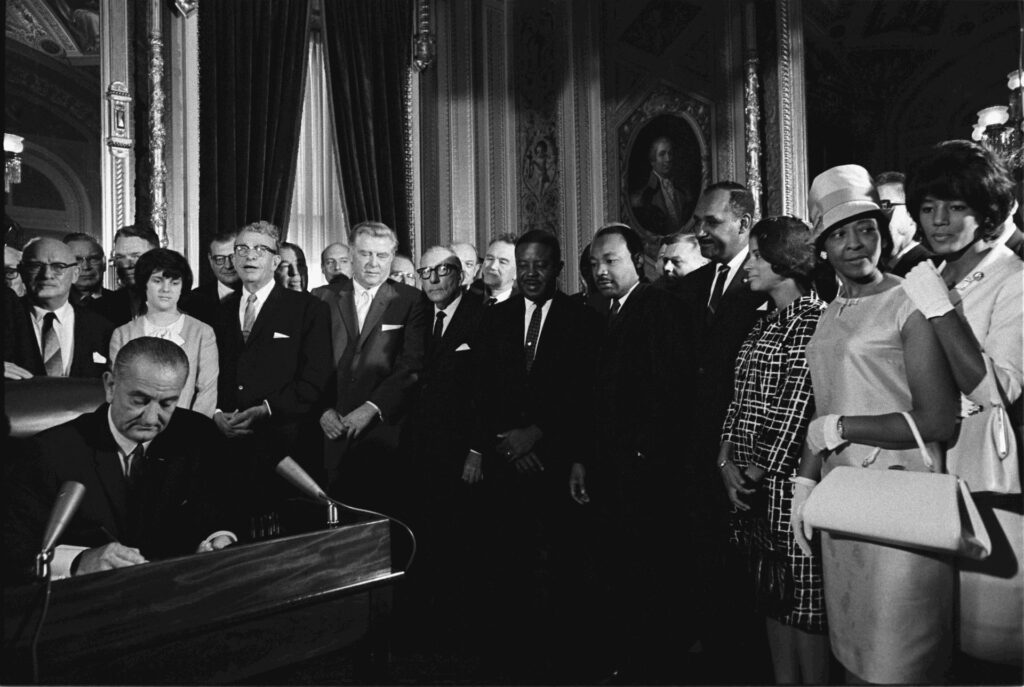Key Federal Laws:

Voting Rights Act of 1965 (“VRA”): While not a Constitutional amendment, this landmark legislation is crucial for understanding the enforcement of the 15th Amendment. The act is one of the most significant pieces of federal legislation protecting voting rights.
It banned literacy tests, provided for federal oversight of voter registration in areas with a history of discriminatory practices, and required jurisdictions with a history of discrimination to obtain federal approval before changing voting laws (preclearance).
- Context: Enacted in response to violent repression of civil rights activists and widespread disenfranchisement of African Americans, the VRA marked a pivotal moment in the Civil Rights Movement, transforming the political landscape by enabling millions of previously excluded voters to participate in the electoral process.
- The Voting Rights Act of 1965 dismantled racial barriers to voting, significantly boosting voter participation among African Americans and marginalized groups by banning discriminatory practices and implementing federal oversight. Although the Supreme Court weakened its protections in Shelby County v. Holder (2013), sparking renewed debates on voter suppression, the Act remains a vital symbol in the fight for voting rights and racial equality.
Help America Vote Act (HAVA) of 2002: HAVA was passed in response to issues during the 2000 presidential election. It established new standards for voting systems and voter access, created the Election Assistance Commission (“EAC”), and provided funds for states to improve their election administration.
- Context: The law was designed to restore public confidence in the electoral process by addressing widespread concerns over voting technology and procedures, which were highlighted during the contentious 2000 presidential election.
National Voter Registration Act (NVRA) of 1993 (Motor Voter Act): This law made it easier for Americans to register to vote and maintain their registration. It requires states to offer voter registration at motor vehicle departments, public assistance agencies, and by mail.
- Context: The act aimed to address declining voter registration rates and increase participation, particularly among low-income and marginalized communities, by reducing barriers to voter registration.
Civil Rights Act of 1964: Although primarily focused on ending segregation and employment discrimination, this law also addressed voting rights by prohibiting unequal application of voter registration requirements.
- Context: As a foundational civil rights law, it set the stage for more focused voting rights legislation, such as the Voting Rights Act of 1965, by highlighting the need for comprehensive federal action to combat systemic discrimination.


